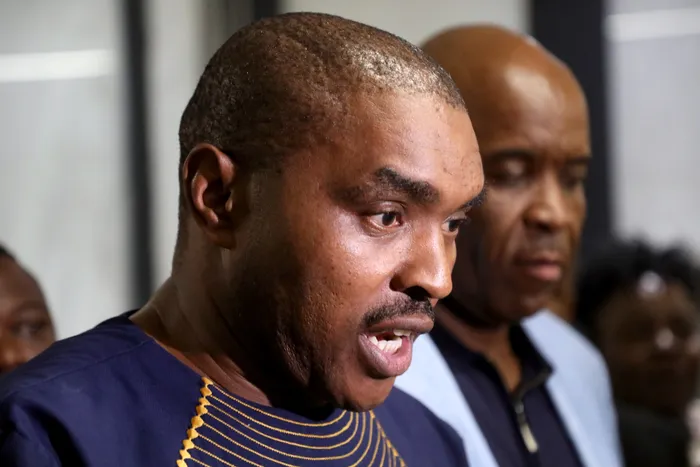
Tshwane Speaker Mncedi Ndzwanana managed to hold onto his position after facing a motion of no confidence.
Image: Good
In an emotionally charged sitting of the Tshwane Metropolitan Council, Speaker Mncedi Ndzwanana managed to hold onto his position after facing a motion of no confidence. The motion, which was spearheaded by the Democratic Alliance (DA), failed to gain the support needed to unseat him, leaving the current leadership structure intact for now.
The motion was introduced by the DA, who argued that Ndzwanana, a representative of the African Transformation Movement (ATM), could not be relied upon to act with neutrality. They cited recent Council proceedings as evidence of partiality and raised concerns about the Speaker’s handling of debates and voting procedures.
But despite their efforts, the DA lacked the numerical strength in the Council to push the motion through independently. Their strategy relied on garnering support from other political parties, especially those in opposition to the ANC and its allies. What followed was a tense round of political negotiations and last-minute lobbying that set the tone for a dramatic session.
In an unexpected twist, ActionSA, a key player in coalition politics across Gauteng, voted against the motion. The move surprised many observers, especially since Johannesburg’s Speaker had been voted out just hours earlier under similar circumstances, with the ANC playing a central role. The assumption was that a pattern might emerge across municipal councils, but ActionSA took a different route in Tshwane.
Funzi Ngobeni, ActionSA’s provincial chairperson, dismissed the DA’s motion as a political tactic rather than a genuine attempt to improve governance.
Speaking after the vote, he suggested that the DA was trying to sow discord within a working coalition.
“This was never about principles or integrity. This was about fear. The DA fears what a functioning coalition looks like when it does not lead it,” Ngobeni stated. “They are struggling to accept that good governance is possible without their leadership, and this motion was a reflection of that discomfort.”
Following the vote, which saw the motion fall short of the required majority, Ndzwanana addressed the Council, calling for a renewed focus on service delivery and political cooperation.
“I acknowledge that criticism is part of public office, but I remain committed to leading this Council with fairness and respect,” Ndzwanana said. “Let us move forward and focus on the real issues affecting our residents.”
Reactions across the political spectrum were mixed. The ANC welcomed the outcome, describing it as a victory for stable governance, while the DA expressed disappointment, warning that the current leadership would only deepen the city’s problems.
The incident highlights the ongoing tension and fragility of coalition politics in South Africa’s metropolitan councils. As parties continue to vie for control and influence, the lines between policy and political strategy remain blurred.